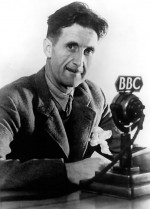Writers and Barcelona
Barcelona has been and keeps being a perfect scene for literary works, a source of inspiration for writers who were born here and a welcoming place for writers from around the world who have described it in their books.
Poet, musician, and translator. At the age of fourteen he published his first book of poems Opus zero --his father was friends with Joan Brossa-- and he took part in the Price dels Poetes exhibition in 1975. This piece of work earned him a place as finalist for the Carles Riba Prize, but which he did not end up winning until 2014 with Dret al miracle. One of his missions is to enrich common lexicon. He admires the exuberance of the language of Ruyra and Foix. His poetry is in fact music, as his musical alter ego is Victor Bocanegra who advocates the temple of knowledge and criticizes digital society.
Writer and translator. She became known as a writer in 2010 with Una terra solitària, awarded the Catalan language literary award Premi Documenta. It tells the story of three different women and three different places: a grandmother, a mother, and a granddaughter, in Andalusia, the region of the Maresme, and the city. She wrote it in a flash, in just a few days, and this has characterized her writing ever since, for example her collection of stories La mala reputació or Vents salvatges both set in Barcelona and the Mediterranean.
Writer and translator. She has been living in Barcelona since 1969. She participated in the vanguard movements of the time and forms part of the literary generation of the sixties. Study in Lilac was her first novel, featuring detective Lònia Guiu as main character, and in which she portrays the Barcelona of the eighties. This second part to this novel was El sol que fa l’ànec. In 2016, she received the Catalan Literature Award of Honour.
Lawyer and writer. He is considered the creator of modern Catalan literature. Although he began writing from a young age in Spanish, his contact with the literary gatherings and the group “La Renaixença” influenced him to write in Catalan the same year that Verdaguer published Atlàntida and Àngel Guimerà was appointed the honourable title of “Mestre en Gai Saber”. His first novel, La papallona was published in 1882, set in the artisan Barcelona, that was slowly undergoing industrialization. Under the influence of “les lectures de Zola”, between 1890 and 1892, he published his most well-known work, La febre d’or, in which he portrays the economic upturn of the Barcelona of the Universal Exposition, the transformation of an artisan city into an industrial and cosmopolitan one. His literature helps us to understand “more closely the extent of that madness”. Into the twentieth century, he focuses on the new Barcelona bourgeoisie in his work Pilar Prim.
Writer, theatre critic, and journalist. In his first novel, Rancho a parte (1997) he portrays the Barcelona of the end of the millennium through art, humorists, the streets, its motorbikes, and film: Truffaut, memories from bar Zigzag and the bridge of Vallcarca. In his latest work, Juegos reunidos, he portrays the generation that lived their youth in the seventies.

English writer and journalist, considered one of the finest chroniclers of the twentieth century. He arrived in Barcelona in December 1936 attracted by the outburst of the Revolution, and portrayed the city struck by war in his work Homage to Catalonia. During his time in Barcelona, he stayed at the Hotel Continental (number 138 of La Rambla) with his wife Eileen. He toured La Rambla, bought goat’s cheeses at La Boquería market, and experienced a shooting in front of the Liceu opera house from Carrer Sant Pau, at the Main Theatre converted into the headquarters of the POUM (The Workers' Party of Marxist Unification). He spent an entire day on the roof of the now Poliorama Theatre, from where he kept guard on the Assault Guards taking refuge at Cafè Moka.
Spanish language novelist and Catalan language journalist. He made his mark with Hilo musical in 2010, the fable of a first time author. In 2016, he wrote Rayos considered by some as one of the best novels about Barcelona. He portrays the city from three different aspects and times: the Barcelona encountered by his parents who came to settle here from Galicia; the poorer districts in Barcelona, and the upper class and newspaper coverage. The title is the name given to the group of youngsters inspired in the beams of the Montjuïc fountains. He forms part of the generation of authors born after 1975 and who write in Spanish.



